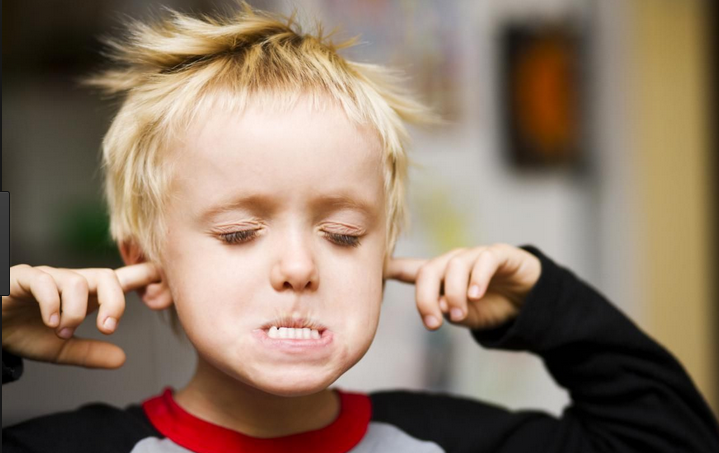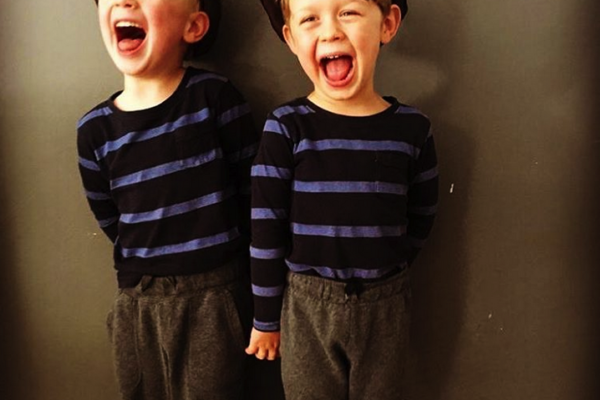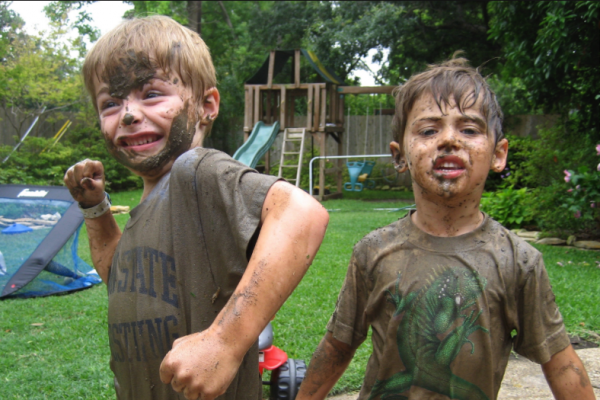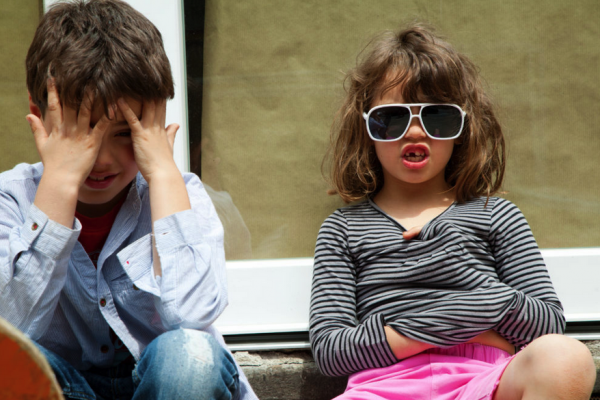
Don’t Let Your Kids Do Anything that Makes You Dislike Them
Don’t let your kids do anything that makes you dislike them
That’s because society doesn’t care about your child nearly as much as you do. If you dislike your child’s behaviour at times, imagine how other people will react to them.
So a general guideline is to intercept unsocial and unruly behaviour in your kids. For their own sake.
Before I unpack this idea, I must credit Jordan Peterson’s recent Amazon #1 bestseller ‘12 Rules for Success: An Antidote to Chaos.’
Rule 5 is my source of inspiration as well as where I got the title for this post. He devotes an entire chapter to the parenting task.
What struck me is that, of all the dimensions of parenting he could have focused on, his chapter focuses singularly on the need for parents to arrest poor behaviour and social ineptness in their fledglings.
Let me try locate his core idea in a framework of parenting styles.
The backbone idea that pervades most of my posts is that we’re meant to both love and lead our kids.
Doing both is called authoritative parenting.
But not all of us strike the balance, and even if we do most of the time, we don’t always. For example, when our leadership is far more prominent than our love for our kids, that’s called authoritarian parenting. When our love is far more prominent than our leadership, that’s called permissive parenting. When there’s neither love nor leadership, that’s neglectful parenting.
In his chapter, Jordan primarily confronts permissive parenting, where parents fail to correct and discipline their kids. Though he touches on the dangers of authoritarian and neglectful parenting, his main concern is parents who, out of laziness or fear of being disliked by their children, turn a blind eye to their child’s egregious behaviour, sometimes even rewarding that behaviour.
The Canadian lecturer, clinical psychologist and Youtube phenom addresses the North American context where ‘peerenting’ is at an all time high – where many parents wrongly think that being their child’s buddy is good parenting. It’s not. We can have a 1000 friends, but we only have 1 or 2 parents.
He says, Two-year-olds, statistically speaking, are the most violent of people. They kick, hit and bite, and they steal the property of others. They do so to explore, to express outrage and frustration, and to gratify their impulsive desires. More importantly, for our purposes, they do so to discover the true limits of permissible behaviour. How else are they ever going to puzzle out what is acceptable? Infants are like blind people, searching for a wall. They have to push forward, and test, to see where the actual boundaries lie (and those are too-seldom where they are said to be).
If we fail to define and guard the boundaries our children are looking for, the consequences will not only be that they are much more difficult to parent, but that they will suffer for the rest of their lives as a result. He writes, If a child has not been taught to behave properly by the age of four, it will forever be difficult for him or her to make friends. The research literature is quite clear on this.
As parents, we have a duty to act as representatives of the real world to our kids. We are proxies – merciful, caring ones – but proxies nonetheless. If we (who claim to love them) fail to rein them when they are young kids, then how much will life and society (who makes no such claim) give them brutal “feedback”.
If you dislike your child’s behaviour, then other people and the rest of society will likely detest that same behaviour in the years to follow.
Other people will swiftly judge and punish your child mercilessly, with nowhere near the tolerance and patience that you show your child. In school, other children will reject a temperamental, unsociable child. Teachers will run out of patience and focus attention on more pleasant children, causing learning differences. Parents will refuse her presence at their play times. If these habits persist into adulthood, employers will fire them; relationship partners will reject them. Think not about having your child avoid all pain, but rather to maximize their learning at minimal cost.
Precisely because you love them and want to set them up for success, intercept their terrible ways of acting.
This parental obligation supersedes any responsibility to ensure happiness, foster creativity, or boost self-esteem, says Peterson. It is the primary duty of parents to make their children socially desirable.
He suggests some principles for disciplining our kids. I liked three of them in particular…
Principle one: Limit the rules.
In society, too many rules can undermine the citizen’s motivation for compliance. Bad rules tends to undermine the appreciation of the co-mingling good rules.
The same is true of parenting. Rules are needed, but too many of them are counterproductive.
In a previous blog, I suggested we articulate to our kid only four abiding rules…
- Don’t damage things.
- Don’t hurt one another.
- Don’t endanger your life.
- Obey our instructions, first time we say them, and straight away.
Fancier than my offering, Peterson posits nine…
- Do not bite, kick or hit except in self-defense.
- Do not torture and bully other children so you don’t end up in jail.
- Eat in a civilized and in a thankful manner so that people are happy to have you at their house and pleased to feed you.
- Learn to share so other kids will play with you.
- Pay attention when spoken to by adults so they don’t dislike you.
- Go to sleep properly and peaceably so your parents can have a private life and not resent your existence.
- Take care of your belongings because you need to learn how and you are lucky to have them.
- Be good company when something fun is happening so you are invited to the fun.
- Act so that other people are happy you are around so people will want you around.
What I like about his rules is that they all appeal to the enlightened self-interest of the child.
That said, the unintended side effect of constantly reminding kids that we want them to be like-able to others is that we shape them to grow up believing that being accepted by society is the goal of life.
It isn’t.
Learning to love people not fear them is. Living by convictions is. Belonging is wonderful, but not if we’re approval addicts.
That said, all of us need a base-set of skills in relating to others if we’re going to succeed in whatever it is we are meant to do with our lives.
Principle two: Use the least force necessary to enforce those rules.
As in society, so in parenting, saying ‘no’ to another is only as effective as the consequences that can be reliably enforced.
Read that again if you want. It’s that simple.
Disobedience without consequences simply reinforces further disobedience.
Having established the need for consequences, Peterson reminds us that we should use the minimum amount of consequence to effect the desired change in attitude and behaviour.
He notes that different children will respond to different kinds of consequences. A sensitive, compliant child my be goaded into submission and repentance by a firm tone of voice, or even a glaring eye and pointing finger. (I only have one kid like this.) However more tough-minded, independent kids will need more. (I have four kids like this.)
What kind of discipline? he asks, and answers…
Time outs can be an extremely effective form of punishment, particularly if the misbehaving child is welcome as soon as he controls his temper. An angry child should sit by himself until he calms down. Then he should be allowed to return to normal life. That means the child wins—instead of his anger.
I have a written a post on the subject which, more than any other post, fellow-parents have told me helped their parenting most. Check it out.
Time outs are the bread and butter of consequences. But there might be occasions when physical restraint is required:
Peterson opines, If your child is the kind of determined varmint who simply runs away, laughing, when placed on the steps or in his room, physical restraint might have to be added to the time out routine. A child can be held carefully but firmly by the upper arms, until he or she stops squirming and pays attention.
Also, physical discipline (aka corporal punishment) might be warranted, he says, if a child runs away laughing in a crowded parking lot, or when they insist of sticking the screwdriver into the wall socket, for example!
Instead of throwing stones at Jordan for making this point, I must admit that I agree with him when, and only when,, it comes to arresting life-threatening behaviour.
Just today, I reminded my younger kids, Mommy and daddy will never smack you, except for one of three reasons: 1) If you step into a road when I have not told you to cross. 2) If you take off your seat-belt while we are driving. 3) If you start to scream at each other or the driver (in which case the driver gets distressed and could crash).
This year I have only followed up on this warning twice.
It doesn’t have to be serious pain inflicted, by the way. So unfamiliar are my kids with physical consequences that a light flick on their arm is all the shock they need to immediately and memorably jolt them out of their disobedience. Helped along by the humiliation, they will hopefully be terrified of doing any of those life-threatening things ever again! Most times, a threat of this impending consequence does the job of getting them to strap their belt back on immediately, or cutting out the scream.
I may have time and patience to overcome other kinds of misbehaviour, but death-inducing behaviour must be stopped immediately and with enduring effect.
Principle three: Parents need to admit their capacity to discipline out of anger not love.
Here’s a principle, one that is more particularly psychological: parents should understand their own capacity to be harsh, vengeful, arrogant, resentful, angry and deceitful.
Jordan adds that us parents may at times be aggressive and selfish, as well as kind and thoughtful. For this reason, no adult human being can truly tolerate being dominated by an upstart child. Revenge will (tend to) come. Ten minutes after a pair of all-too-nice-and-patient parents have failed to prevent a public tantrum at the local supermarket, they will be tempted to pay their toddler back with the cold shoulder when he runs up, excited, to show mom and dad his newest accomplishment.
So true.
In the same way we can be under-firm in our interventions, so we can over-do them.
We can go beyond the firmness that is warranted and let it transmute into an undue harshness – either by attacking our kids verbally (or worse yet physically) or (just as bad) by withdrawing our affection and attention from them in contempt.
The point of this principle is that we need to lead ourselves even while we lead our children. As unacceptable as a child lashing out in frustration against her sibling, is us lashing out against our children in similar frustration.
I am no saint on this point by the way.
I know firsthand that our kids have the power to frustrate us more than any other human. Julie and I have ‘lashed out’ more times than we like to admit.
This is the main reason Julie and I don’t smack our kids outside the three scenarios mentioned earlier. We can so easily use it as an outlet of our own frustration or anger.
It’s not just corporal punishment that can be wrong. There’s a fair amount of research that yelling at our kids might be just as damaging as spanking them.
The bottom line is there’s a big difference between being firm and harsh.
To avoid harshness, we should not take our children’s behaviour personally. Truly loving parents will discipline their kids not primarily for our own sake, but for the sake of our children’s long-term well-being and social desirability.
It’s true that love must sometimes be tough. But when tough love is required we need to be tough with ourselves – confronting both our own tendency to cowardly or lazily under-lead our kids, as well as our propensity to be tyrannical brutes.
We are to love them and lead them.
Besides how can we have one without the other? Our love for them should guide our leadership of them. We lead them because we love them. And we lead them in the most loving way we can.
Comments
Also published on Medium.




